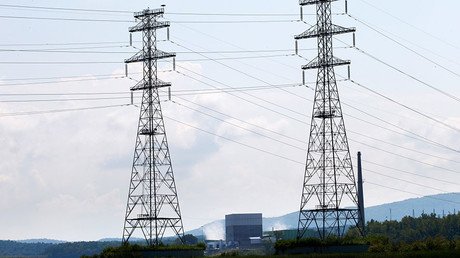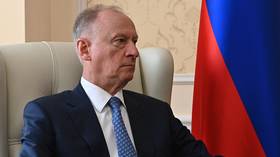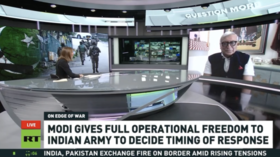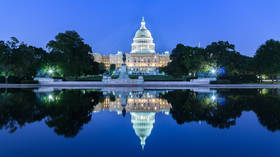No real proof in ‘Russian hacking’ report, as it lacks crucial details – ex-NSA tech director to RT
The FBI report supposedly bursting with evidence that Russian hackers breached US servers contains no real proof, computer experts say – among them former NSA technical director and whistleblower William Edward Binney.
The report was meant to provide the American public with much-delayed proof that Russia had hacked the DNC to influence the US election. While it failed to do this, it did serve as the Obama administration’s justification for expelling 35 Russian diplomats and their families from the United States.
“I think that’s the whole point,” Binney told RT. “I’ve seen absolutely nothing that shows any involvement of the Russian government in passing data to WikiLeaks.”
He recalled Julian Assange's recent admission that the leaks had not come from Russia, as well as Craig Murray, the former UK ambassador to Uzbekistan, who said that he had personally met the insider who had leaked the incriminating data to the whistleblowing website.
The ex-NSA director did not find the report produced this week by the FBI and DHS convincing.
“It is simply an outline of how a phishing attack occurs, that's all it was to me. It didn't prove anything to me."
"It didn’t give the IP addresses, the Mac numbers or any other details about them,” he explained, adding “it also didn’t show how they hacked in, and how they ex-filtrated the data, how much data they took,” or how it was consequently passed on to the Russian government.
“They didn’t show any of that trace routing. And that’s what they should have shown to prove it,” he stressed.
READ MORE: Report on ‘Russian hacking’ offers disclaimers, barely mentions Russia
Then there is the very peculiar disclaimer on the report warning that it has been published “for informational purposes only, which Binney says is proof that the document was never meant to be anything other than an instruction manual on how to carry out an attack.”
After the report’s release on Thursday, 35 Russian diplomats were given just hours to leave the United States. Obama also promised that more measures would follow, not all of which would be made public. In justifying the decision, the US president said he was using his new powers that were granted to him by his own new executive that authorizes him and his successors to freely retaliate against those believed to have tried to influence US elections.
READ MORE: Putin: Russia will not expel anyone in response to US sanctions
However, Binney sees the recent step as a purely cosmetic one, and doesn’t seem to think that Obama is set on causing significant damage to US-Russia relations before his time is up.
“I just think it’s another way – some action to take that will not be very meaningful, it’s not going to be really threatening… I think it’s a meaningless act that can be reversed in a second once the new president is in office,” he said.
President Vladimir Putin refused to dignify Obama’s punitive measures with a response, as many expected, announcing that he would not be returning the favor with expulsions of his own. While Putin said he regretted that Obama was ending his term “in such a way,” he extended his New Year’s greetings to the outgoing US president and his family nevertheless.
The statements, views and opinions expressed in this column are solely those of the author and do not necessarily represent those of RT.














